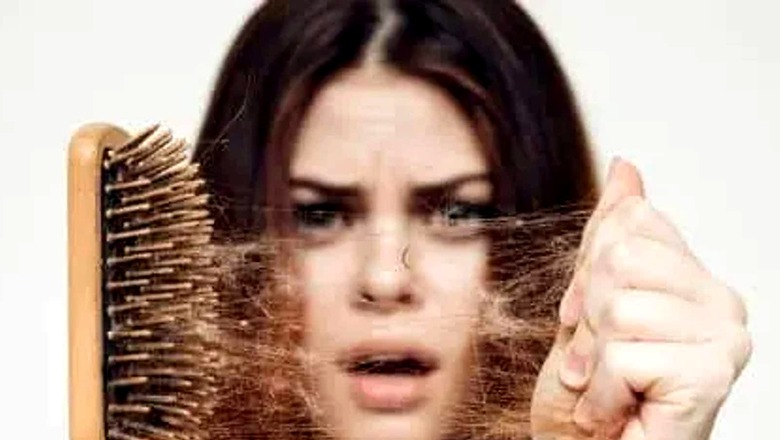
views
Now that you’ve hit the big 40, are you frustrated with your receding hairline, excessive hair loss, and thinning? Everyone wants to keep their long, thick hair as they grow. But regrettably, just like everything else, hair also undergoes changes with age. Your body’s hormones change, causing your once-shiny, vibrant hair to thin and start falling out, sometimes a little, sometimes a little too much. Although hair loss is a natural aspect of getting older, there are still ways to prevent it.
Causes of hair fall
According to Healthline, the hair on your head has a life cycle that includes growth, resting, and shedding. People typically lose around 100 strands of hair per day. If you notice more sudden loss, loss in patches, or overall thinning, consult your doctor.
Hair shedding could be short-term and may respond favourably to dietary changes, specific treatments, or lifestyle changes. Other types of hair loss may be permanent or will not stop until the underlying condition is treated. According to reports, hereditary conditions such as androgenic alopecia affect approximately 50% of men and 15% of women (male and female pattern baldness).
Other causes of hair loss include:
Medical conditions, such as alopecia areata, scalp infections, or trichotillomania (hair-pulling disorder)
Hormonal changes, such as those caused by pregnancy, childbirth, menopause, or thyroid issues
Medications or supplements: those used to treat cancer, high blood pressure, depression, or arthritis.
Poor diet
Physical or emotional stress
Styling practices: wearing too-tight ponytails or cornrows, etc.
Untreated scalp infections
How can I stop my hair from falling out?
You must understand the cause of your hair loss in order to stop it. If you notice abrupt hair loss, it’s best to consult a dermatologist as soon as possible. The expert will examine your scalp, and may also conduct tests to find out more. The sooner you identify the underlying problem, the better the treatment will work.
What can help hair regrowth?
While a healthy lifestyle is the most important factor in hair growth, there are also topical scalp treatments, medications, light therapy, and cosmetic procedures that can help. But since your hair is extension of your body, maintaining a healthy lifestyle is essential for hair growth. You can take the following precautions:
Consume a well-balanced diet.
Deal with stress in a healthy way.
Limit your use of hair treatments, heat styling, and hair products.
Keep the sun off your hair and scalp.
Get enough rest.
See your doctor on a regular basis for preventative medical care.
Read all the Latest Lifestyle News here


















Comments
0 comment